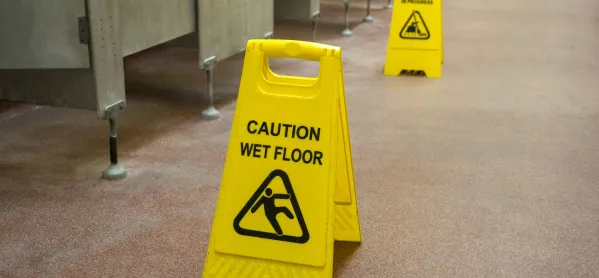Inappropriate school toilet policies could lead to pupils developing health problems, a children’s charity has warned.
Alina Lynden, from ERIC, a children’s bowel and bladder charity, said that school policies that do not allow pupils free access to the toilet can lead to continence issues in young people.
News: Are your strict toilet rules risking students’ health?
Related: ‘Never forget the importance of school toilets’
Quick read: The dangers of pupils avoiding school toilets
“Poor practices in school, such as not allowing free access to the toilet, preventing children from having water bottles on tables and unpleasant, poorly stocked toilets can actually result in young people developing a continence problem,” she told Tes.
“Some schools are doing a great job of supporting children with continence problems, but the majority aren’t as understanding as they should be and [are] providing inappropriate responses - parents being repeatedly called in to change their child, for example.”
The ‘stigma’ around bladder and bowel problems
Ms Lynden said that cuts in school nursing were adding to the burden on schools. She added that more needed to be done to combat the “huge amount of stigma and lack of understanding around bladder and bowel problems”.
ERIC and the charity Bladder and Bowel UK have launched a new guidance document - Managing Bladder and Bowel Issues in Nurseries, Schools and Colleges - in response to the growing number of calls to a helpline.
According to the charity, over 900,000 children and teenagers in the UK struggle with continence issues. Some parents have reported that being called into schools to change their child had left them unable to work.
Ms Lynden said she hoped the guidance would help schools to give young people “the right support” and dispel any “myths around accidents being down to lazy kids or poor parenting”.
The guidance gives some key recommendations to schools about how they can best help pupils struggling with continence.
They include being aware of bladder and bowel conditions and supporting affected children, encouraging pupils to drink enough water during the school day and ensuring that pupils can access clean, well-stocked toilets at times appropriate to their needs.
The guidance also advises that schools should not refuse admission to pupils with continence issues. Pupils who struggle with this should be offered a care plan, and parents should not be expected to come to school to change their children
Juliette Rayner, chief executive of ERIC, said: “We hope this guidance will raise awareness of the prevalence and range of different continence conditions, and encourage positive action between school and home whilst providing information and strategies for preventing and managing bladder and bowel conditions in educational settings.”




